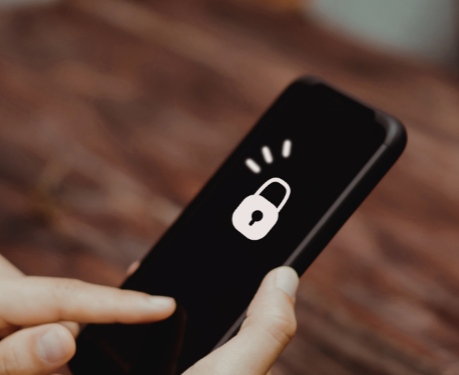
Available Services
At ScreenSense we provide parents, caregivers, and educators support through education, consulting, and community-building.
Parent Education
Parents need help navigating today’s complex world of digital tech! Through our Parent Ed presentations, we hope to inform and empower our audiences with research-based practical advice and a call to community action. We acknowledge the complex and challenging work of raising kids in the digital age, and our tone is compassionate and non-judgmental. Our solution-oriented messaging encourages parents and caregivers of children in preK-8th grade to prioritize IRL (in real life) childhood essentials and introduce tech slowly, in age-appropriate ways with guardrails and limits.
Our Parent Ed presentations - available from September through April either in person (locally) or virtually - are ideal for schools, districts, pediatrician offices, and any family-serving organization. We encourage groups to co-host our Parent Ed events, sharing the cost and reaching more parents in your local community.
Start here!
New to ScreenSense? We recommend our foundational Parent Ed presentation - “So. Many. Screens!” - as a first event for parents of TK-8th graders. This presentation can be directed at elementary school parents, middle school parents, or both age-groups combined (TK-8th). Here’s a description:
So. Many. Screens!
YouTube Shorts, group texts, poop emojis, TikTok reels, and social media...how does a parent navigate this evolving minefield?? In this solution-oriented talk, we cover:
What current research is saying
How to get tech in check & reduce harm online
In-real-life (IRL) activities to prioritize for your child
Community solutions to take the pressure off (For schools and organizations in Marin County, this includes an introduction to our countywide collective action movement: Kids IRL)
Looking for age-specific content?
We also offer the following Parent Ed presentations tailored to age-groups since tech-related challenges and solutions vary by age and stage of development. These presentations include a summary of current research, practical ways to keep tech in check (or get ahead of what’s to come!), in-real-life activities to prioritize, and community solutions to take the pressure off.
AGES 0-5
Raising little ones in a big tech world. What parents of ages 0-5 need to know.
Tech can easily take over childhood—but it doesn’t have to! In these early years, the way we parents use devices teaches our kids how to use them. This presentation breaks down the latest research on harmful tech trends and shows how small shifts—like modeling healthy habits and delaying the more problematic types of tech—can protect childhood and strengthen real-life connection. Start early, stay ahead of what’s to come, and create an intentional relationship with tech that works for your family.
TK-2ND GRADES
Getting ahead of the tech tsunami. What TK-2nd parents need to know.
Your tone and approach to tech in these early elementary years helps pave a healthy path for tech use in the future. In this presentation, we discuss current research on how the overuse of tech is impacting today’s youth, including effects on health and development. Changing current youth tech norms is possible and starts by prioritizing childhood essentials like movement, time outdoors, and imaginative play. We discuss how modeling the tech habits we want to teach, creating a family approach to tech, and delaying exposure to problematic types of tech in these early years are three proactive steps parents can take to “get ahead” of all the more complicated tech choices that are coming your way.
3RD-8TH GRADES, depending on current tech norms in your community
Taking phones slowly. Together.
(Recommends delaying and then opting for a very simple phone or watch until high school)
Research shows that excess phone use can impact kids’ development and wellbeing. But, as parents, there comes a time when we want to be able to communicate with our kids, and then our kids want to be able to contact their friends. How do we meet those growing needs while avoiding unnecessary risks and harms so our kids are safe and healthy? By delaying phones as long as possible and then choosing a simple phone or watch to meet the basic needs of childhood communication. A simple phone or watch enables calling, texting, and other basic tools… while delaying nonstop access to distracting apps and social media that quickly crowd out the essential in-real-life nutrients of childhood. In this presentation we make the case for delaying and then keeping phones simple, setting tech boundaries, encouraging offline activities, and teaming up with other families to reduce pressure on both parents and kids.
Delaying social media. Together.
(Recommends delaying social media apps like Instagram, Snapchat, and TikTok until high school, ideally age 16)
Today’s social media landscape is shaping how kids see themselves and the world—often before they’re ready. This talk dives into current research on how platforms like TikTok, Snapchat, Instagram, YouTube, and Discord are impacting youth mental health, self-esteem, and safety. Learn why many experts recommend delaying social media until at least age 16, what key developmental needs to protect in the tween years, and how to navigate conversations, boundaries, and check-ins with your child. We’ll also explore practical steps parents can take to delay social media use, and how communities can work together to ease the pressure and support healthier norms.
So… My kid has social media. What should I know?
(Recommends ways to reel in social media use like Instagram, Snapchat, and TikTok)
Explore the latest research on how social media is impacting today’s youth, including effects on mental health, self-esteem, and development. We’ll take a closer look at popular platforms like Snapchat, TikTok, YouTube, Instagram, and Discord—what to know if your child is already using them, key risks to watch for, and how to have ongoing, meaningful conversations and check-ins. Parents will leave with practical strategies to reel in social media use, set healthier boundaries, and reduce potential harm. We'll also discuss how parents can work together to ease peer pressure and create supportive norms around healthy tech use.
What format do you need?
Virtual presentation (60 min, includes Q&A) - Includes a Parent Packet with related resources that’s shared digitally plus a recording that is available for a limited time.
In-person presentation (75 min, includes Q&A) - Available in Marin County and surrounding areas. Includes a Parent Packet with related resources that’s shared digitally.
Need Spanish? We are happy to work with a live Spanish translator provided and paid for by your school or organization. We can provide our slides & handouts in Spanish upon request.
Want a customized event?
We are happy to partner with schools and organizations to create customized events and presentations about desired topics. These can be stand-alone Parent Ed presentations, expert panel discussions, or co-creating a series of events, workshops, or activities to facilitate collective action for your community.
We have previously facilitated Anxious Generation book club discussions, led community discussions and panels after screenings of Screenagers films, and presented workshops on specific topics like teaching kids how to text, navigating video games, fostering IRL independence, and preparing for the middle school transition.
If you are interested in customized Parent Ed, please email us at info@screensense.org
If you are looking for a deeper dive into specific safety concerns around specific apps like Snapchat, Tik Tok, Instagram, Discord and YouTube we HIGHLY recommend pairing our presentations with a presentation from the Vigilant Parent Initiative. This is a free in-person presentation schools can schedule with the Marin County Sheriff's Department. We have attended one of these presentations and they are very informative if you want to get into all the nitty gritty and very eye opening! If you are interested in learning more, please contact the Marin County Sheriff’s office.
1:1 Tech Consulting with Families
Feeling overwhelmed with managing screen time at home? You are not alone. Whether you're setting up a first phone for your child, configuring Screen Time for Apple, Google, or Windows platforms, establishing WiFi downtime, or locking down a device to just calls and texts, it helps to have a caring voice to help cut through the overwhelm. Rebekah will walk you through the tools, settings, and strategies that put you back in control - and give you peace of mind.
Rebekah Cunningham
Director of Technology, ScreenSense
Sometimes having an experienced guide, who understands all the nuances, can make all the difference.
Why work with Rebekah?
Rebekah offers personalized consulting services—either in-person (Marin County) or virtually—for parents who want expert guidance in managing technology at home. She works one-on-one with families through their unique challenges to create a tech-positive environment that reflects your values, supports healthier habits, and reduces daily tech-related stress.
For more information or to schedule an in-home or virtual session, contact us at info@screensense.org.
Consulting with School Leaders
Daily life at school for educators and students is increasingly affected by technology. Schools are navigating a new world of teaching and learning in a digital age with constant Ed Tech advances, school-issued devices, disciplinary issues resulting from tech misuse, and student phones and smartwatches disrupting the school day. We believe schools have a unique opportunity to contribute to the collective action needed within communities to create a healthy, balanced, and intentional relationship with technology.
We can support schools in this multi-faceted work in several ways, including:
Surveying students at your school to better understand their particular use of screens, phones, and social media (we provide the short survey, you administer it, and we analyze and present to you a summary of results and implications for education and community action)
Devising a coordinated action plan for parent, staff, and student education to promote a healthy relationship with tech for your school community
An audit of tech use on campus, including student phones (plus smartwatches and earbuds) and school-issued devices
Rolling out suggested guidelines from the school for healthy tech use at home
Strategic guidance on implementing a phone-free school day - start here!
Providing parent orientation/training when distributing school-issued devices
Currently we offer consultations to schools in the SF Bay Area. For inquiries, please email info@screensense.org




